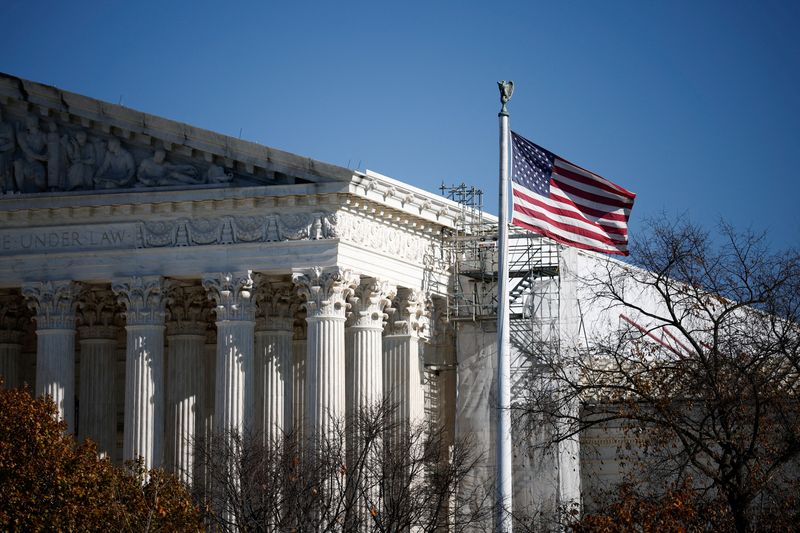By Nate Raymond (NSE:RYMD)
(Reuters) - The U.S. Supreme Court cleared the way on Thursday for the enforcement of an anti-money laundering federal law that requires corporate entities to disclose the identities of their real beneficial owners to the U.S. Treasury Department.
The justices put on hold a nationwide injunction issued on Dec. 3 by a federal judge in Texas who had concluded that Congress had overstepped its powers under the U.S. Constitution in passing the Corporate Transparency Act. The 2021 law was challenged in court by small businesses.
The justices acted after the New Orleans-based 5th U.S. Circuit Court of Appeals allowed the injunction to take effect ahead of a Jan. 13 deadline that most companies had faced to submit their initial reports to the Treasury Department's Financial Crimes Enforcement Network, known as FinCEN.
Former President Joe Biden's administration had asked the Supreme Court to stay the injunction. It said millions of entities had already complied with the reporting requirement before U.S. District Judge Amos Mazzant's ruling that blocked the law's enforcement nationally even though the small businesses did not ask for that result.
The injunction was obtained by the National Federation of Independent (LON:IOG) Business, which along with several small businesses challenged the law through lawyers at the conservative Center for Individual Rights.
A beneficial owner is defined as an individual who directly or indirectly owns or controls a company. This law required corporations and limited liability companies, or LLCs, to report information concerning their beneficial owners to FinCEN, which collects and analyzes information about financial transactions to combat money laundering and other crimes.
The measure's supporters have said it was designed to address the growing popularity of the United States as a venue for criminals to launder illicit funds by setting up entities like LLCs under state laws without disclosing their involvement.
"The act's reporting requirements are important to the government in preventing, detecting and prosecuting crimes such as money laundering, tax fraud and the financing of terrorism," the Biden administration's Solicitor General Elizabeth Prelogar wrote in a brief to the Supreme Court.

Mazzant, based in Sherman, Texas, ruled that Congress has no authority under its powers to regulate commerce, taxes and foreign affairs to adopt the "quasi-Orwellian statute" and that it likely violated the rights of states under the Constitution's 10th Amendment.
Prelogar, in her brief to the Supreme Court, argued that the judge's ruling was too sweeping and wrong, citing the authority of Congress under the Constitution's so-called Commerce Clause to regulate economic activities that affect interstate commerce.